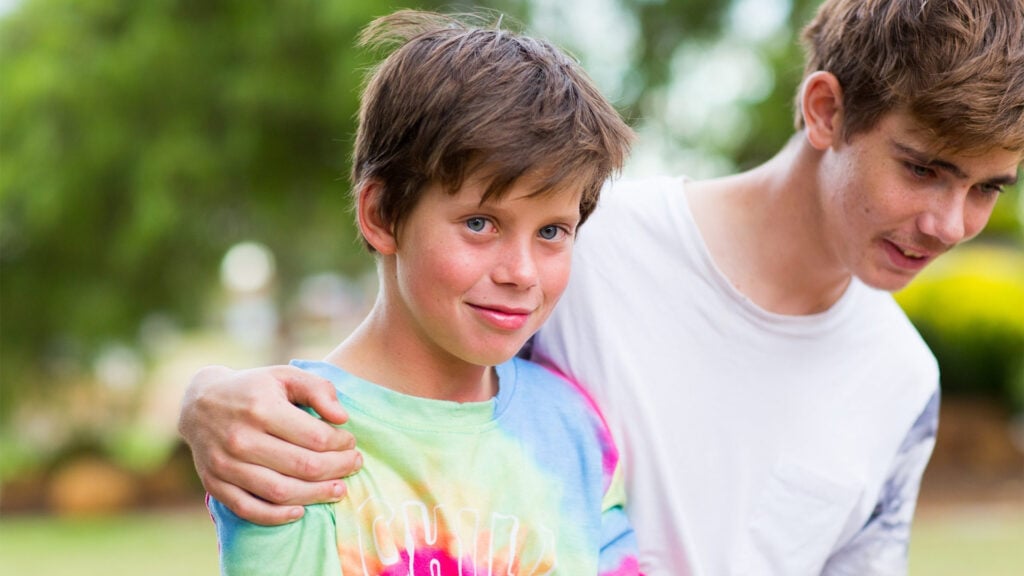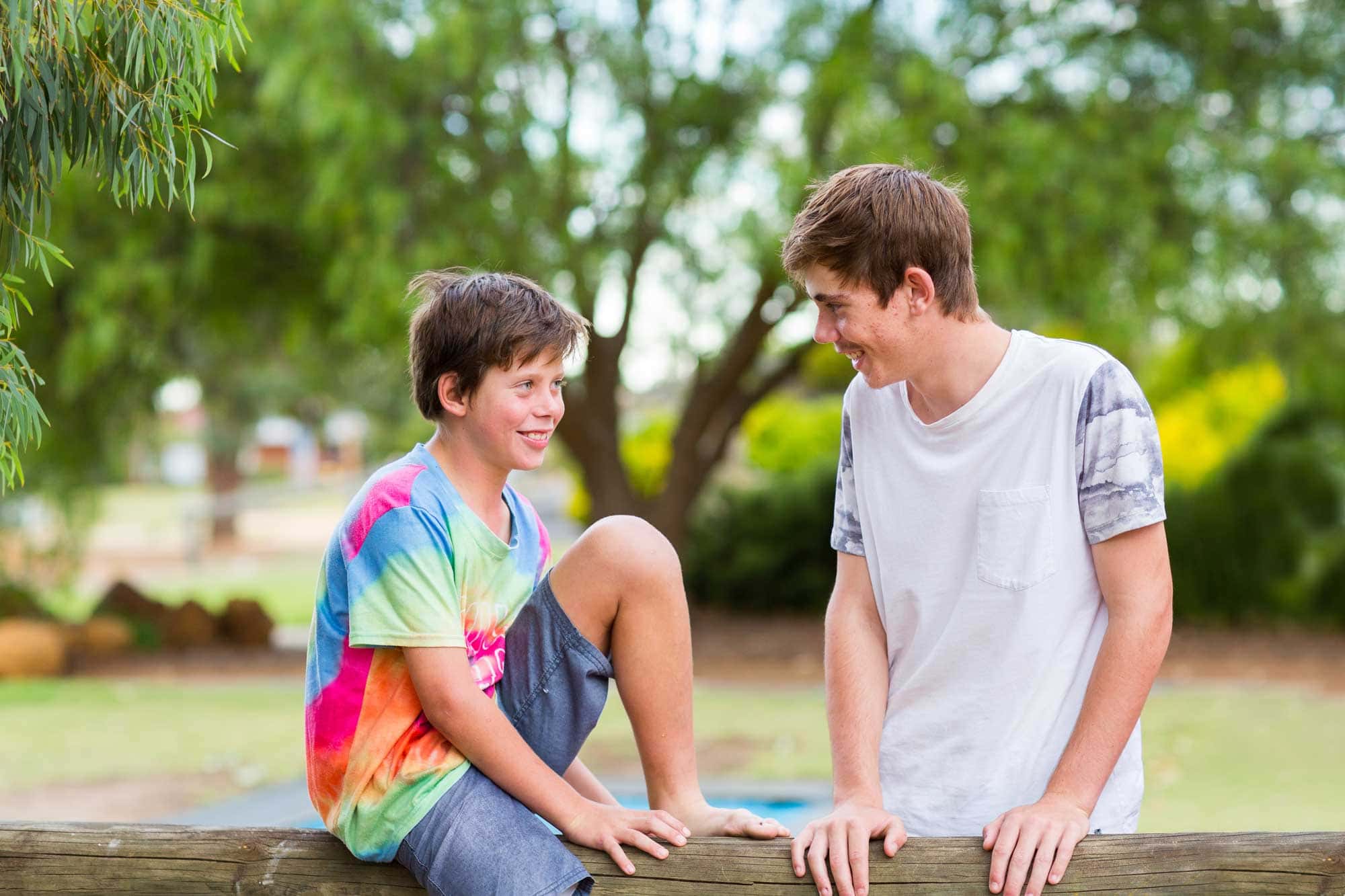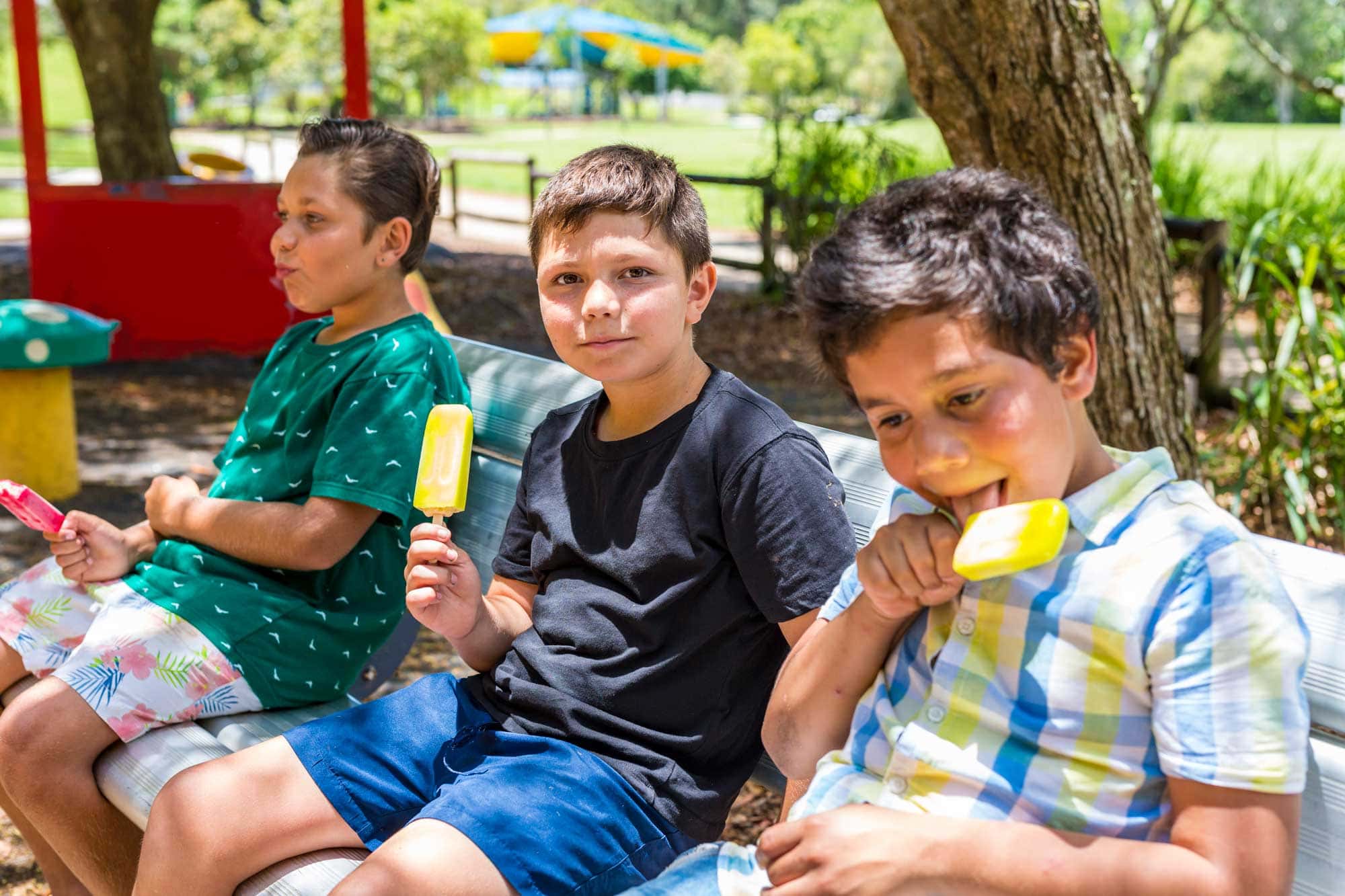
In the realm of residential care, challenges often loom large. But you don’t have to look very far to find stories of triumph that are testament to the dedication and resilience of Mercy Community’s care teams.
Here, we delve into the heartwarming narratives of siblings as they journey from residential care to reunification with their families.
Mercy Community Residential Care Area Coordinator Catherine Fatu said it was lovely to reflect on the positive achievements of the residential care team.
“These kinds of stories just make you really thankful that you actually are making a change, that you are actually a part of making a difference in people’s lives,” she said.
“It’s fantastic to be part of a team that’s just out there to make sure these kids succeed, because they definitely deserve some good times.”

Michael’s journey: From disengagement to reconnection
Michael entered the residential care program in April 2022 when he was 13. He hadn’t been to school for two years and his mother was struggling to cope with her sons.
His 11-year-old brother Brad was placed with a foster family, but they were unable to take Michael as well because of his more challenging behaviour.
Ms Fatu said: “We put him straight into school. He did full days for about six months and then he dropped down to part time, but we were still proud of the fact that he was going to school.
“He was very disengaged from family at that time. We did a lot of work building his capacity to cope, but as well as being really child focused, we needed to connect with everyone involved to make sure all outcomes were positive.”
Despite an initial disengagement period, our consistent efforts and collaboration with a Child Safety Officer (CSO), meant that regular phone calls between Michael and his mum gradually progressed to face-to-face visits.
The strategic inclusion of Michael’s brother in fortnightly sleepovers not only strengthened sibling bonds but also created a supportive environment for reunification.
Ms Fatu said: “We started those visits as semi-supervised. This was to work with mum and help her reconnect with her boys.
“We saw a huge decrease in her anxiety, especially with Michael, who had the more complex behaviours that she struggled with.
“We also noticed that her affection in the beginning was standoffish towards him.
“She would be more mothering towards Brad than she would be with Michael.
“But over the year that we worked together with everyone, you could see a huge change.
“She would call the house and be excited to speak to her son. She was eventually able to build a relationship with him that was kind and affectionate.”
In December 2023, Michael and Brad moved back to their mother’s care, marking a successful transition from residential care to family reunification.
His mother contacted the care team recently to say he is very happy and enjoying school.

Daniel, Robert, and Peter’s journey: A triumph for three siblings
The residential care team embarked on a unique journey with Daniel, Robert and Peter – three siblings, aged 8, 10, and 12 – facing challenges stemming from domestic violence, substance abuse, and their mother’s inability to cope due to her own trauma.
The boys were introduced to residential care due to concerns about their safety and well-being.
Over a span of 12 months, the team focused on building the mother’s capacity while addressing trauma and challenging behaviours.
The team’s innovative approach involved trauma-informed care, not only for the siblings but also for the mother, recognising her triggers and providing tailored support.
“We found that more work needed to actually be done with mum than it did with the boys,” said Ms Fatu, who spearheaded the team’s efforts to reunify the siblings with mum.
“We had to understand that she was being triggered by the boys’ behaviour because of her history of abuse.
“When she heard them screaming and yelling as boys do, she was triggered by her own trauma.
“We did a piece of work around that which changed the way the team responded to supporting her.
“We found we needed to try and build mum’s capacity to help her to understand her sons but also we had to put our ‘trauma lens’ on and see things through her eyes.”
Face-to-face visits evolved from semi-supervised to fully supervised, ensuring the safety and well-being of all involved.
Through consistent efforts, a supportive care team, and trauma-informed strategies, the three siblings were successfully reunified with their mother.
The program’s success was underscored by the positive impact on the mother’s confidence and parenting skills, creating a stable and nurturing environment for the reunited family.
“We were able to get to the stage where she could have a sleepover with her sons,” said Ms Fatu.
“Then we built up to her spending a day with them once a week and we kept gradually building on that until eventually she was able to have them back home.
“We did do some outreach work in the home with her for a bit, but now she calls us and says, ‘We’re good’.
“It’s very rewarding and a reminder of why we do the work we do.”
*All names in this case study have been changed and stock imagery has been used to protect the privacy of the people we support.
About our Residential Care Programs
Our Residential Care Programs provide safe, fully supported placements for children and young people up to 17 years with complex needs or challenging behaviours that require intensive support.
The residential houses are staffed 24-7 by dedicated care workers, who are there to provide structured and therapeutic care for the children and young people.
Our skilled team has been trained on structure, nurture, play, trauma, and attachment-informed interventions, to support children and young people to recover from experiences of abuse and neglect.
The aim of the program is to empower each child or young person with the skills and confidence to live a happy, full, and meaningful life.
Children and young people are encouraged and supported to:
- Achieve their personal goals (education, employment, recreation, relationships, life skills and independence)
- Foster positive family relationships
- Maintain connection to culture



